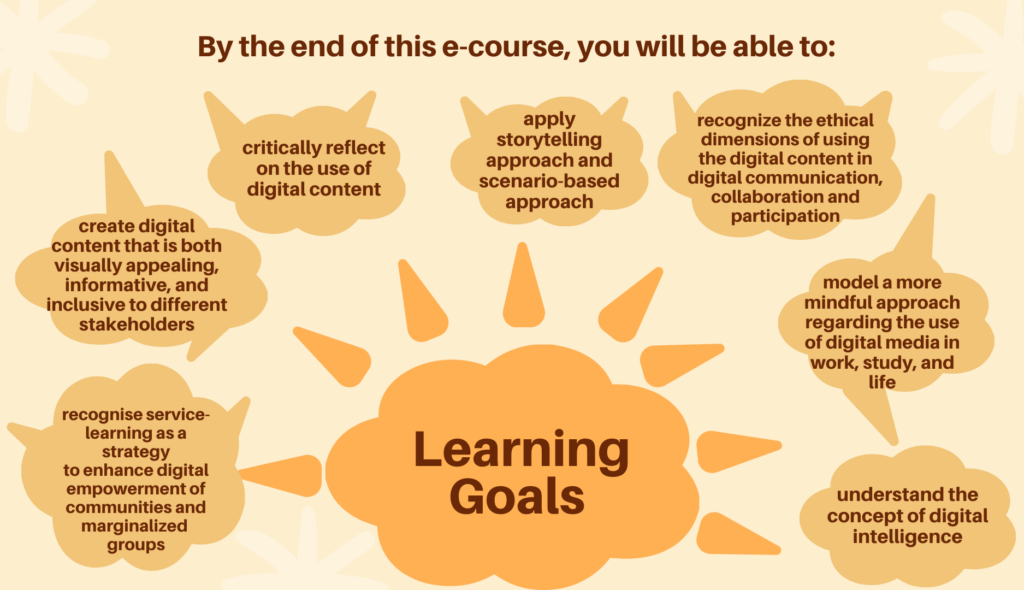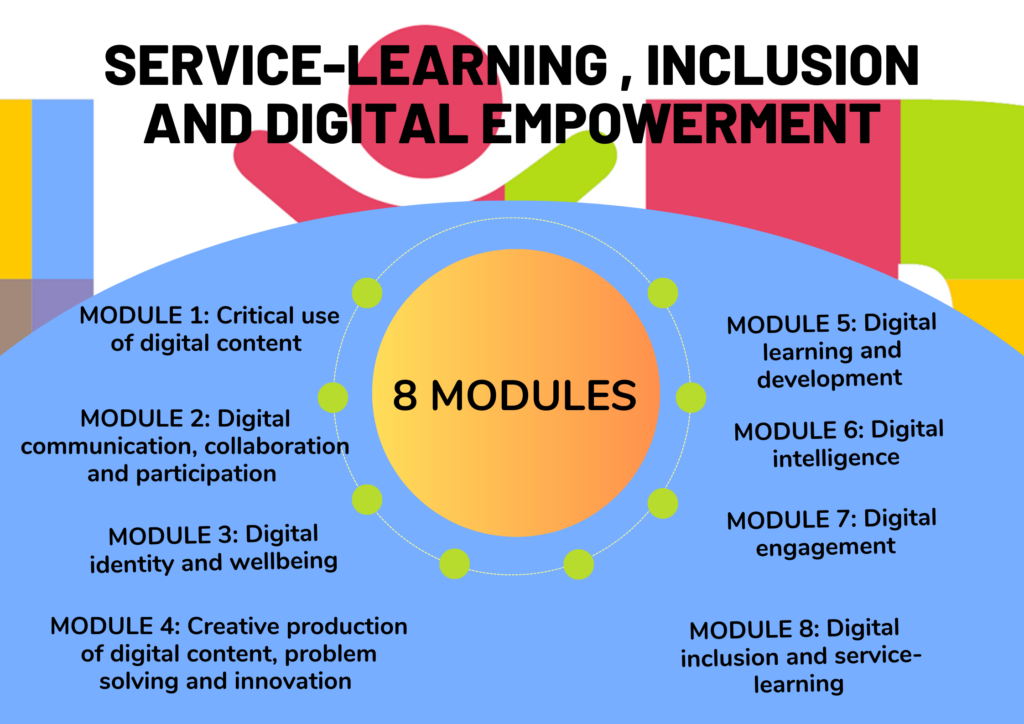Digital Development: e-course for students
The e-course ‘Digital Development’ helps higher education students to equip skills and knowledge to fully participate in digital education, and to make connections with local communities and sensitize them towards digital inclusion and digital empowerment of underprivileged and underrepresented community members.
Are you interested in integrating our MOOC in your own course?
We can easily register your students to the platform!
Contact us via slide@ucsia.be
Learning goals

Module overview

Course description
The e-course ‘Digital Development’ aims to equip students with skills to fully participate in digital education, but also with pedagogical skills to make connections with local communities and sensitize them towards digital inclusion and digital empowerment of underprivileged and underrepresented community members. It is aimed at empowering students to address sensitive contemporary societal issues and at developing following skills: criticial use of digital content, digital participation, self-actualisation, creative production of digital content, problem solving, digital learning and development.
The e-course is organized around four main digital pillars:
- Digital competence: confident and appropriate use of digital technologies to engage in society
- Digital fluency: appropriate use of technologies and application of digital skills to enhance one’s own learning, work-readiness or everyday life
- Digital intelligence: a set of social, emotional and cognitive abilities that enable individuals to face the challenges and adapt to the demands of digital life
- Digital engagement: appropriate use of digital tools to find, listen to and mobilise a community around an issue
Read the full course description in your own language:

